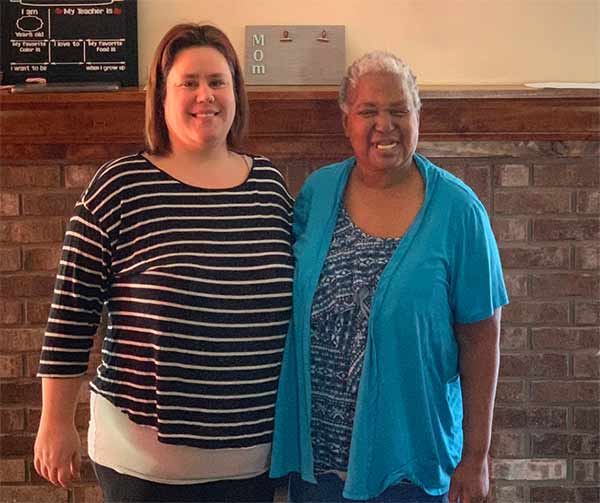Shared Living
A Heartfelt Home & Comprehensive Support
At Emmaus, we believe that real community starts with genuine connection. Our Shared Living program (also called Host Homes) pairs adults with developmental disabilities with caring individuals or families who welcome them into their homes and hearts. Together, they create a home built on respect, dignity, and belonging.
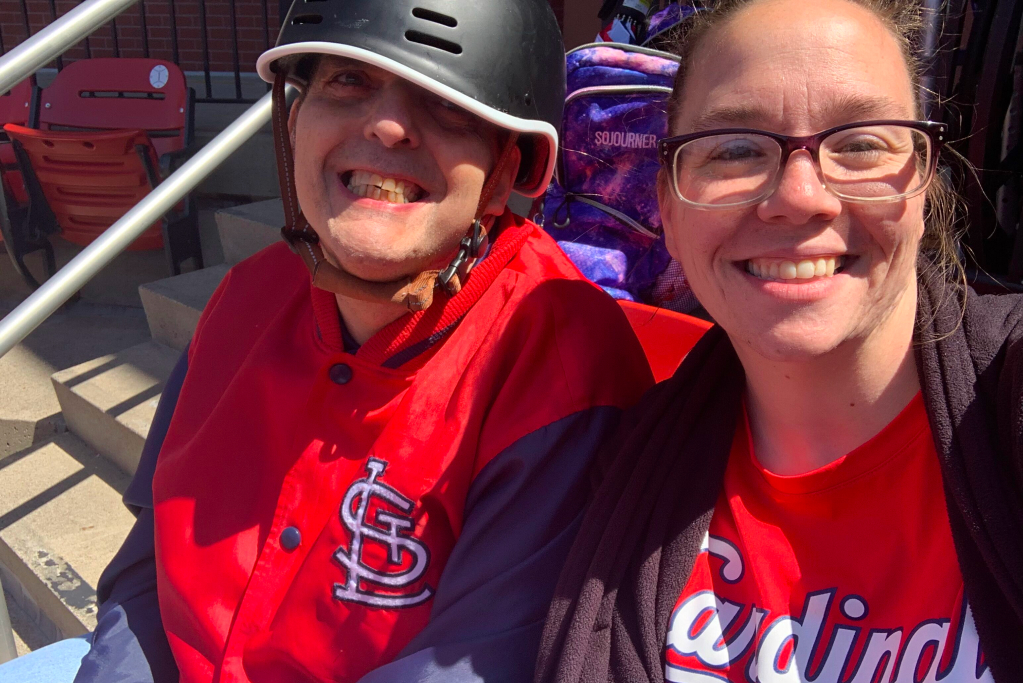
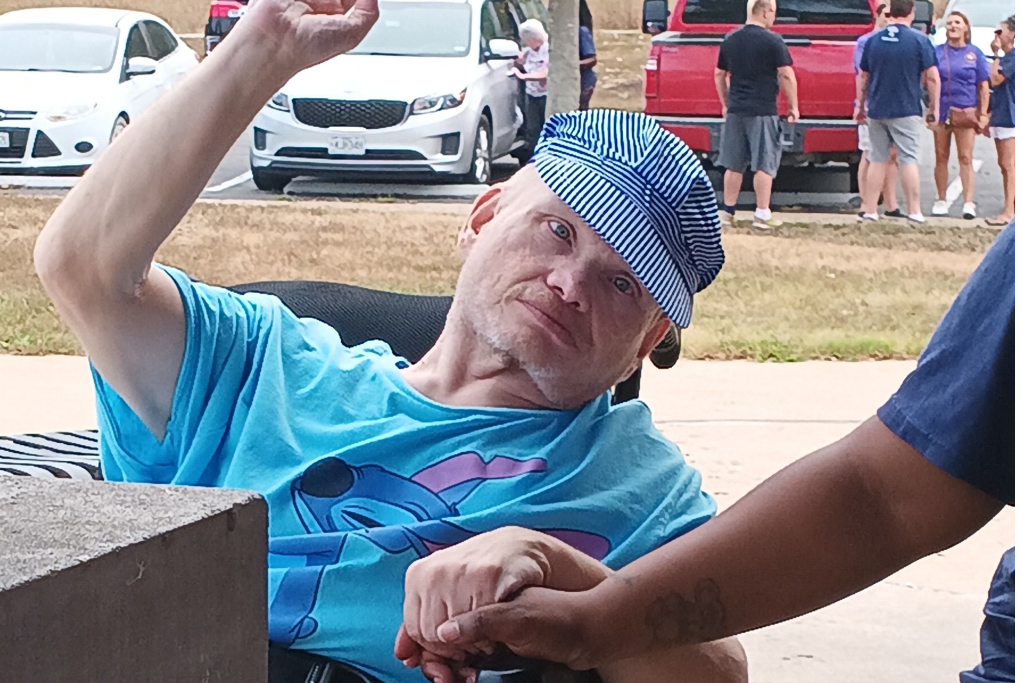
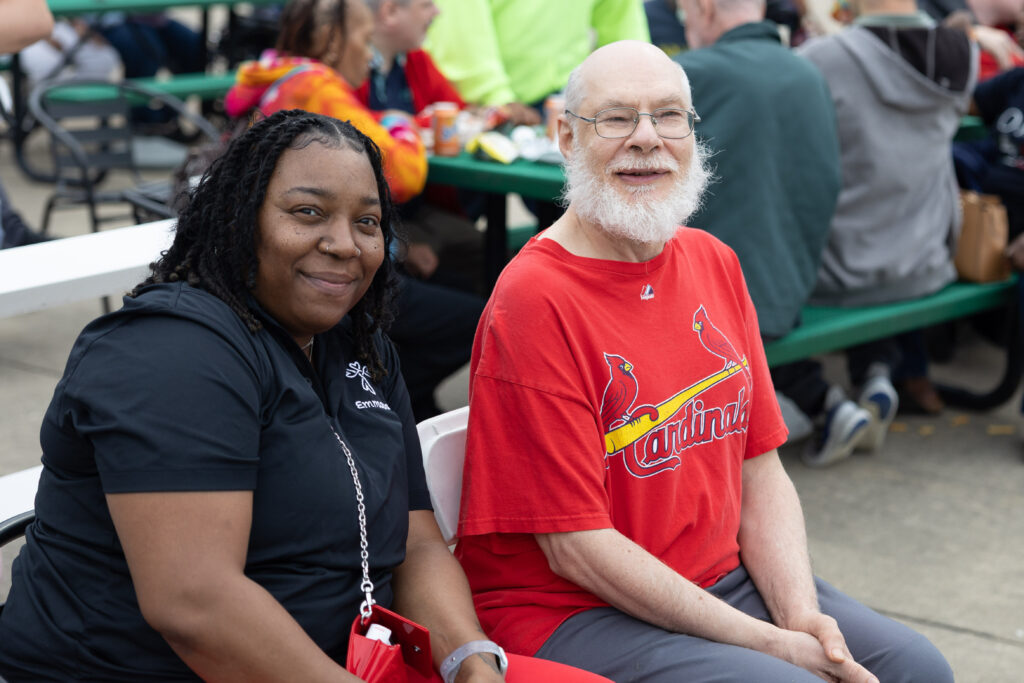
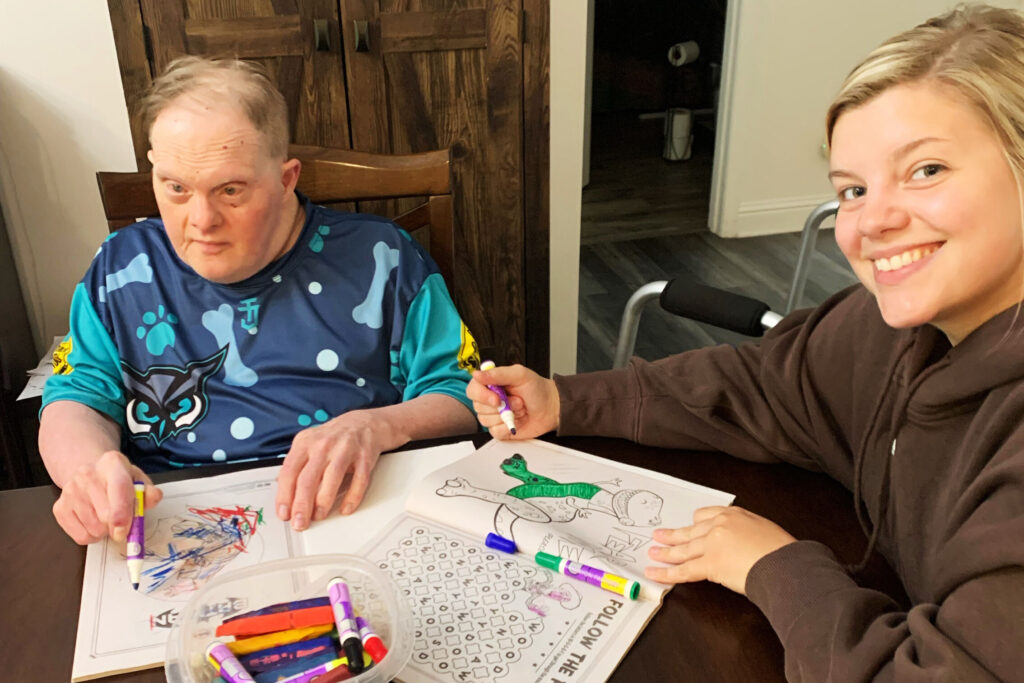




What is Shared Living?
Everyone deserves a safe, supportive home and a life of independence.
Shared Living is a unique residential option where an adult with a developmental disability lives in the home of a dedicated individual, couple, or family—called a Shared Living Provider. In this family-like setting, the individual receives personalized, around-the-clock support in a place they call home.
Emmaus matches each individual with a provider based on lifestyle preferences, cultural values, pets, children, social needs, and family involvement. This careful matching process ensures trust, comfort, and compatibility.
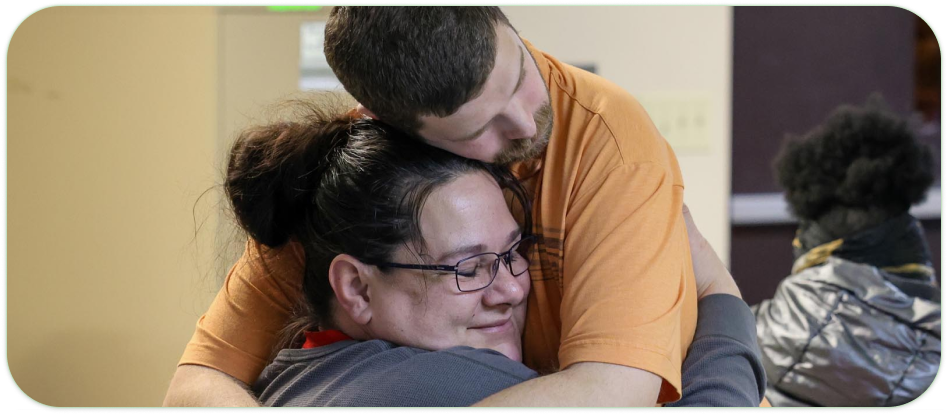
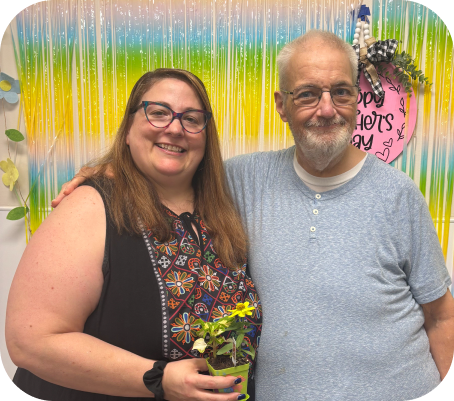
Though the setting differs from Supported Living, the goal remains the same:
Empowering independence, fostering inclusion, and supporting the whole person for their whole life.
Why Shared Living?
For many individuals and families, Shared Living offers the perfect blend of personalized support and genuine human connection.
Benefits for Clients Include:
01
Help learning life skills like:
- Cooking and healthy eating
- Caring for their own room or shared spaces
- Budgeting and money management
- Navigating community life and building friendships
- Exploring employment and volunteer opportunities
02
A family-like home environment with their own room to decorate and personalize
03
Holistic support: emotional, medical, social, and spiritual
04
Inclusion in daily routines, holidays, traditions, and family life
05
Emotional and spiritual support
Emmaus supports individuals in doing as much as they can for themselves—because independence builds confidence.
Spiritual Support That Feels Like Home
In Shared Homes, spiritual services are shaped by each person’s faith, comfort, and goals. Whether it’s worship, quiet reflection, or connection to a faith community, we help individuals feel spiritually supported and fully at home.

Thinking About Becoming a Shared Living Provider?
Open your home and your heart. Shared Living Providers play a vital role in someone’s journey to independence. You don’t need a specific degree or background—you just need compassion, patience, and a desire to make a difference.
Providers come from all walks of life:
01
Empty nesters
02
Families with children
03
Single adults or couples
04
Retirees or recent graduates
05
Anyone with a stable home and a heart for service
We encourage every client to contribute to their household and set personal goals — creating a space where independence is practiced and progress is celebrated.
Get Started at Emmaus Homes
Request a Meeting
Complete a Home Inspection
Find the Right Match
Fill out your application and learn more about the Shared Living Provider experience.
What Support Will I Receive from Emmaus?
Emmaus is here for you every step of the way.
We Provide:
01
Comprehensive training (CPR, First Aid, Medication Administration, Client Rights, Person-Centered Planning, and client-specific care)
02
Monthly compensation for support and housing (Note: Providers are independent contractors, not Emmaus employees—consult a tax professional.)
03
Relief hours (150–260/month) so you can take breaks, vacations, or maintain a second job
04
Ongoing support from our professional team, including case managers and nursing staff
05
Community and encouragement from other providers in the Emmaus network
Clients bring their own Medicaid/Medicare insurance, and you are never responsible for prescription co-pays or medical costs.
Melissa & Kathleen:
A Shared Living Success Story
“Kathleen and I truly feel like family. She’s lost weight, become more independent, and even rides rollercoasters now. Watching her grow has changed my life too.”
— Melissa, Shared Living Provider
Shared Living works because it’s built on connection, mutual respect, and trust. Just like in Melissa and Kathleen’s story, real transformation happens when people feel seen, supported, and included.
Frequently Asked Questions
Every service at Emmaus is built to support independence, inclusion, and self-advocacy—with a deep commitment to dignity, respect, and person-centered support.
How are Shared Living Providers compensated?
Shared Living Providers (or Hosts) are independent contractors who receive a monthly stipend that covers both housing (room and board) and support services provided to the client. While Hosts are not employees of Emmaus and do not receive traditional benefits, they are issued a 1099 form each year and are encouraged to plan for their own retirement and health needs.
How much do Hosts get paid?
Compensation varies depending on the level of support a client needs. Because each match is unique, payments differ accordingly. Many Hosts may qualify for significant tax exemptions on this income under current IRS guidelines. We strongly recommend speaking with a tax professional to understand the specific benefits available.
Do Hosts pay for the client’s medical care or prescriptions?
No. Clients are covered by Medicaid and/or Medicare, and they handle their own medical expenses. Hosts are not responsible for medical costs or prescription co-pays.
Am I responsible for transportation?
Yes. Hosts provide transportation to and from essential activities such as medical appointments, therapies, employment, community events, and social outings. You’ll need a reliable vehicle with current insurance, but note that mileage and vehicle expenses are not reimbursed by Emmaus.
How Long is the Commitment?
Shared Living is a year-to-year commitment, with the opportunity to renew each year. Many of our Hosts form lasting, meaningful connections that go well beyond the first year.
Can Hosts Continue to Have Family & Friends Visit?
Absolutely. You’re encouraged to continue living life as you always have—whether that’s hosting game night, family dinners, or backyard barbecues.
Visitors don’t need to undergo a background check unless they move in or stay for more than two weeks. Anyone 18+ who becomes a long-term member of the household must complete a background check.
Is everyone in my home considered a Host?
No. Only the designated individual listed on the Host agreement with Emmaus is responsible for providing care. However, all adults living in the home (18+) or guests staying more than two weeks must complete a background check for safety and compliance.
Can someone else in my household be paid to provide support?
Yes, if agreed upon by the planning team, another member of your household may provide Relief Support—giving you time off when needed. This individual must complete all required training before offering care or receiving compensation.
Can I be a Host if I have pets?
Yes, as long as the client you’re matched with is comfortable around animals. Each client’s Person Centered Support Plan (PCSP) outlines whether they can live in a home with pets. Emmaus will ensure that matches are made accordingly.
Does my home need to be a certain size?
While there’s no specific square footage requirement, the client must have their own bedroom. Bathroom sharing is okay. More important than the size of your home is the quality of support and the safe, welcoming environment you provide. A home study will be conducted to ensure the space meets the client’s needs.
Will I need to manage the client’s medications?
Yes, Hosts are trained to administer medications and ensure medical needs are addressed appropriately and on time. You’ll receive comprehensive training and guidance tailored to your client’s needs and Person Centered Support Plan.
Do I need to be married to become a Host?
No. Hosts can be single adults, couples, retirees, college students, working professionals, and families with children. What matters most is your ability to provide a safe, stable, and compassionate home, complete training, and maintain compliance.
What kind of training is provided?
All required training is available through Emmaus. This includes:
- First Aid & CPR
- Medication Administration
- Client Rights & Confidentiality (HIPAA)
- Person-Centered Planning & Positive
- Behavior Support Client-specific care guidance
- Electronic documentation training
Am I with the client 24/7?
No. All clients have a set number of relief hours—usually between 150–260 hours/month—funded by the Department of Mental Health. These hours give you time to rest, take care of personal responsibilities, or enjoy a vacation.
What Are Relief Hours?
Relief Hours are designated time off from your caregiving duties. You may use these hours for:
- Family events (weddings, funerals, reunions)
- Vacations
- Errands or personal appointments
- Attending school
- A second job
- Quiet time for rest, hobbies, or paperwork
Relief care is typically provided by someone you hire and train (with Emmaus’ support). We’ll go over all the details in your Host Information Session.
Will there be inspections?
Yes and you will have our support to pass inspections. Emmaus conducts a home study to ensure the space is appropriate and safe for your future client. You’ll be guided through this process every step of the way.
Stories of Success
At Emmaus, you’re not just getting support.
You’re getting a community that believes in you.
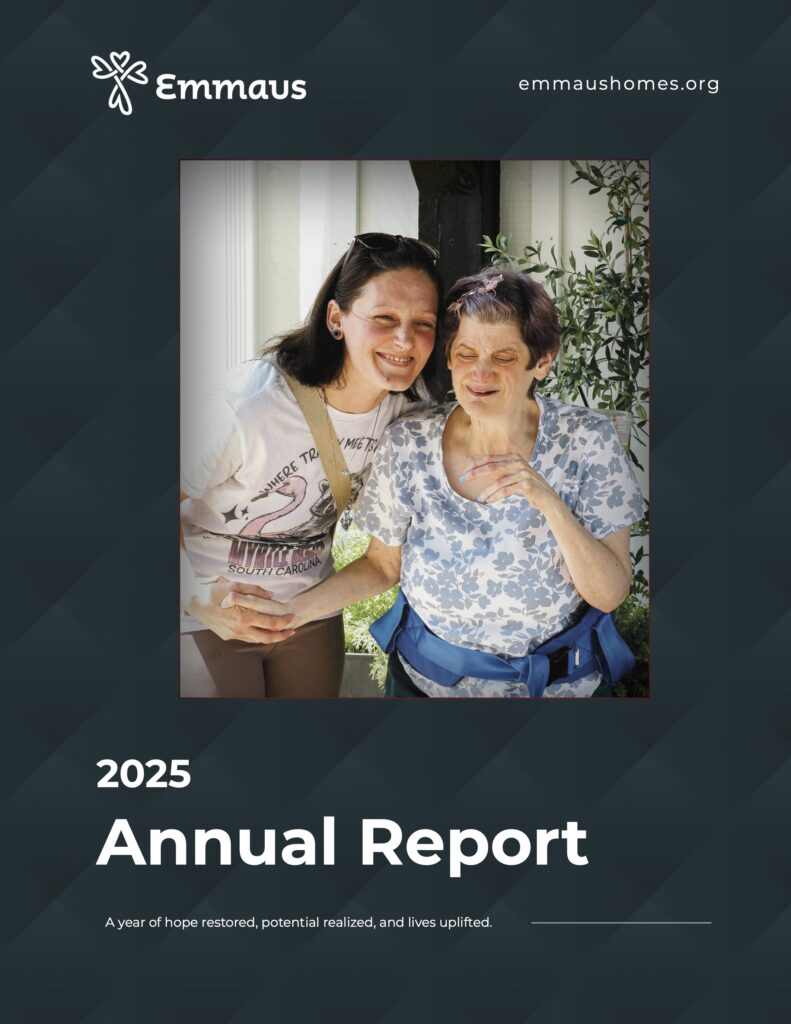
Discover the Impact You Made This Year — Our 2025 Annual Report Is Here
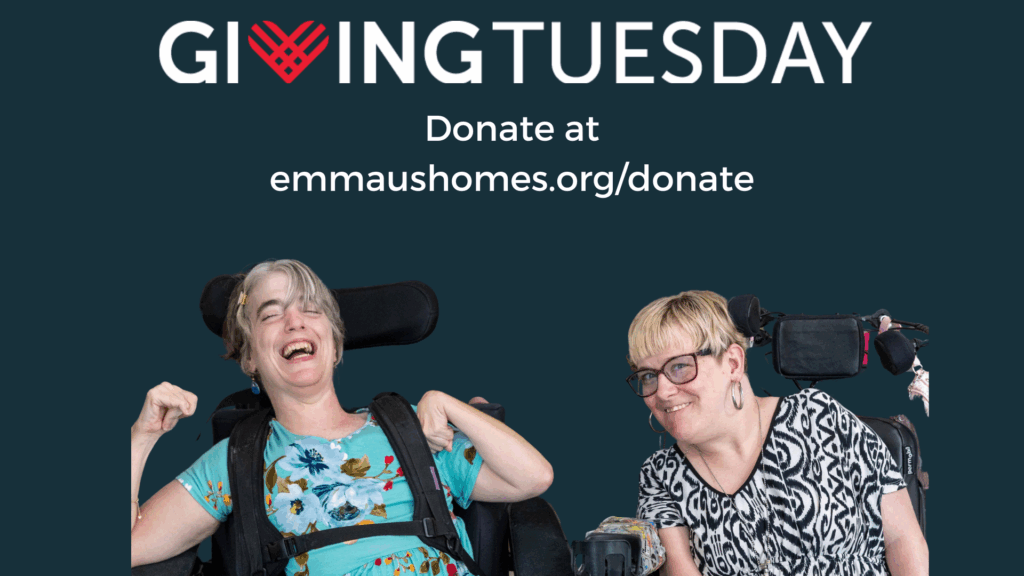
Lisa Key Talks Giving Tuesday on KTRS
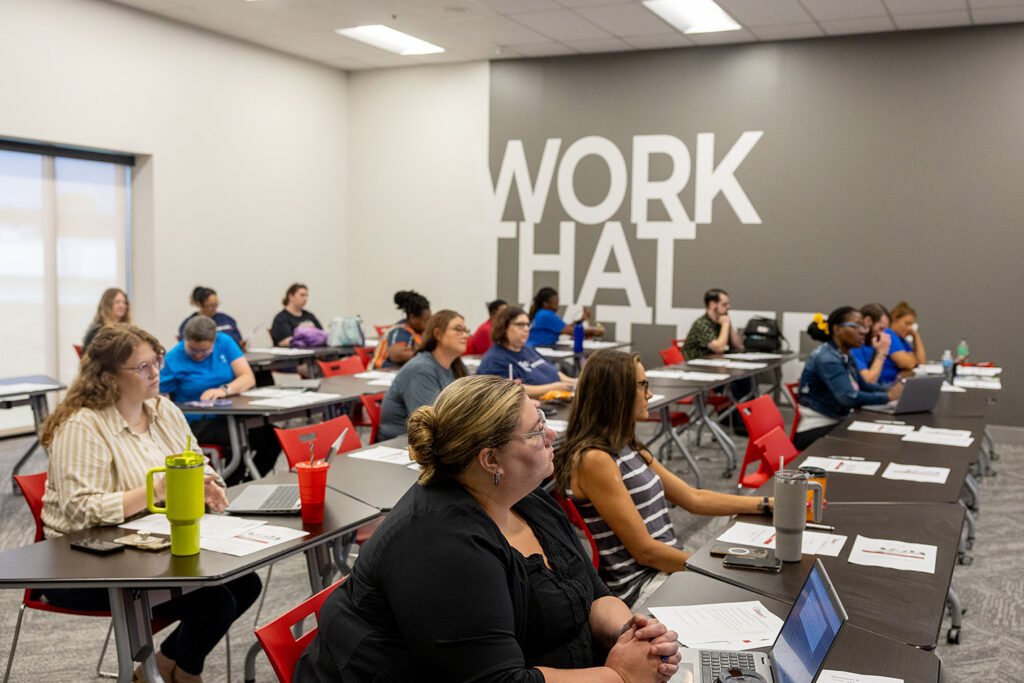
Inside the Learning Lab: Training That Sparks Change, Not Just Note-Taking
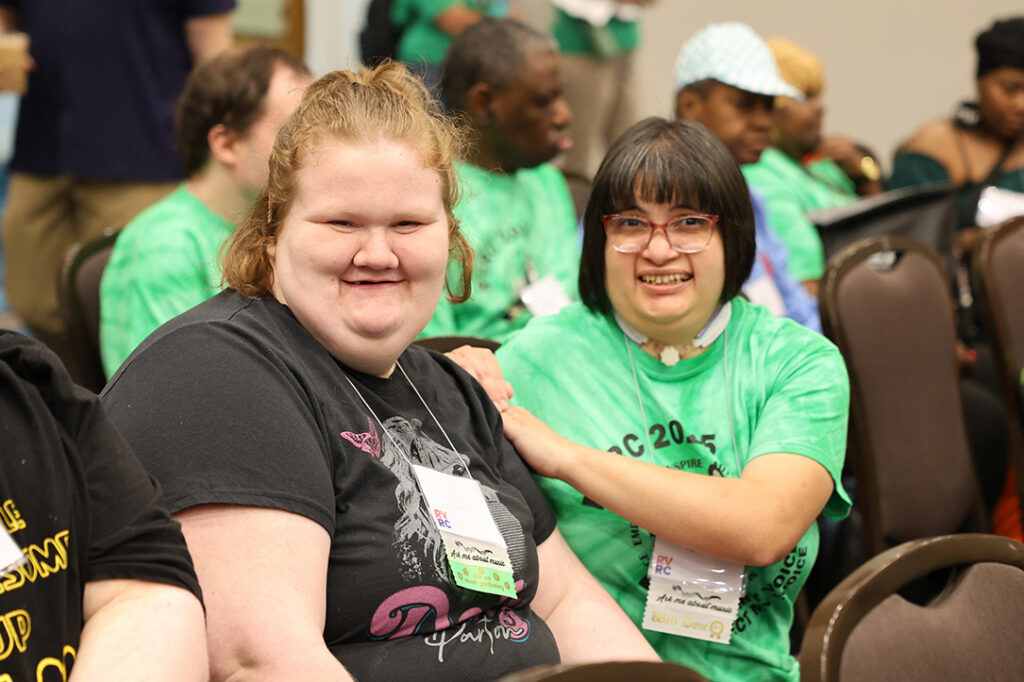
Emmaus at Real Voices Real Choices
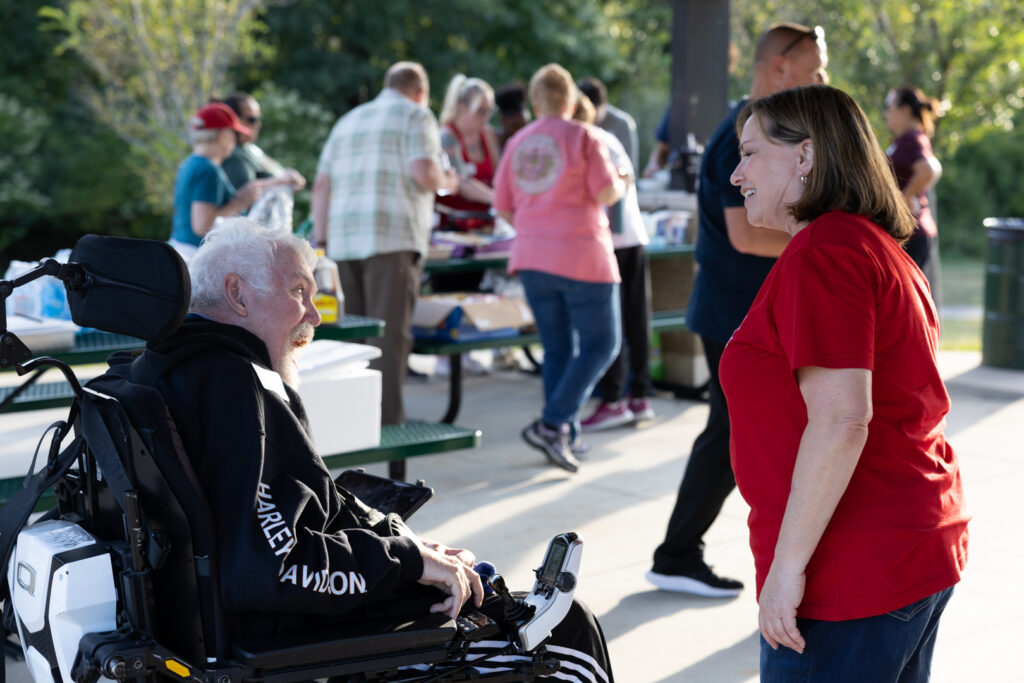
When Neighbors Become Friends
Ready to Open Your Home?
Becoming a Shared Living Provider changes lives—yours included.
Need help navigating residential services?
Call United Way 2-1-1 for support and guidance.

